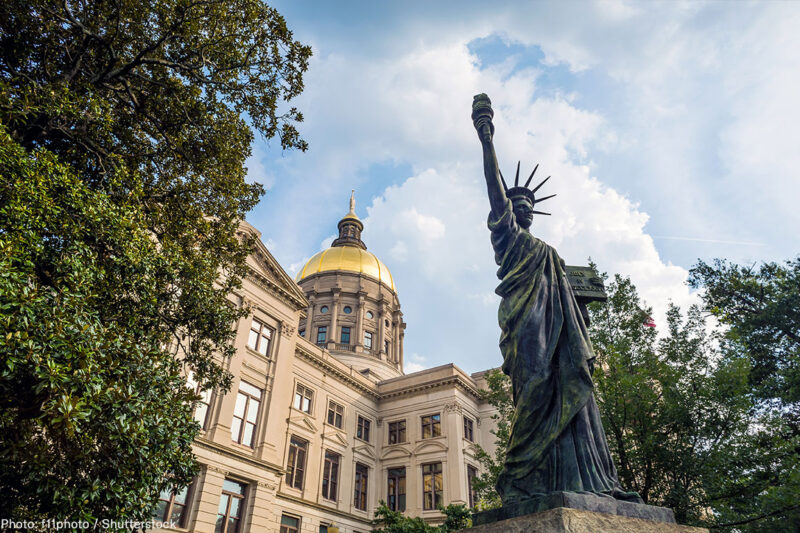
In a victory for the people of Georgia, a federal appeals court ruled on Friday that the state can no longer charge individuals hundreds of dollars to see the laws that govern them.
To get there, the court relied on a central tenet of American democracy: The government works on behalf of the public.
Quoting the Declaration of Independence, the U.S. Court of Appeals for the Eleventh Circuit wrote, “The concept of popular sovereignty is deeply rooted in our politics, our law, and our history. The seminal statement of America’s political creed boldly proclaims that ‘[g]overnments ... deriv[e] their just powers from the consent of the governed.’”
For decades, Georgia ignored this reality. Rather than make the text of the law freely available, the state pay-walled access to the statutes, court opinions, and annotations that make up its official law.
In 2013, a nonprofit called Public.Resource.Org paid for a copy of the state’s official code and posted it online for free. The state responded to this act of public service by suing the organization for copyright infringement. Rather than give in, Public.Resource.Org argued that Georgia law is in the public domain.
Along with a number of other groups, the ACLU filed a friend-of-the-court brief to support the nonprofit. We argued that the state cannot claim a copyright in its law because copyright vests only in the author of a work — in this case, the public — and because giving the state a private property right in the law would violate the public’s First Amendment right of access as well as principles of due process.
The three-judge panel agreed, writing that under democratic rule, “lawmakers and judges are draftsmen of the law, exercising delegated authority, and acting as servants of the People.” As a result, when legislators and judges produce content, “the People are the true authors.” Or, put even more poetically, “When the legislative or judicial chords are plucked it is, in fact, the People’s voice that is heard.”
In reaching this conclusion, the court added to centuries of precedent holding that, in a democracy, the people are sovereign and so are the ultimate authors and owners of the law. This is the right vision of democracy — and in Georgia, it means the law is finally free.


